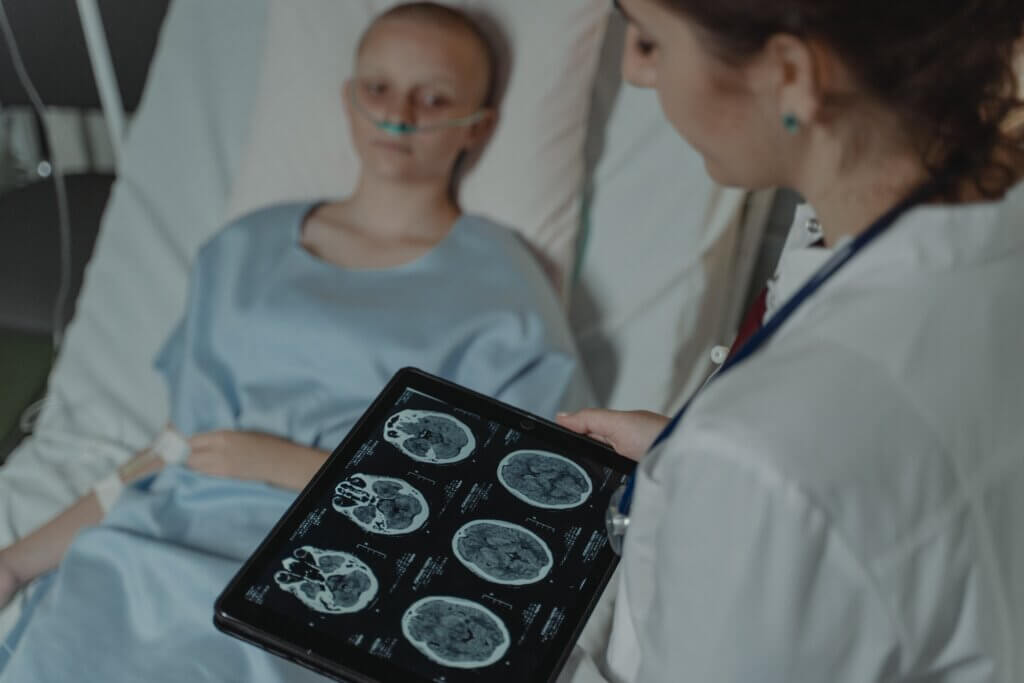A new and unique type of precisely placed, highly targeted radiation therapy for brain cancer is delaying tumor regrowth while protecting the healthy tissue surrounding the tumor. The only health system in San Diego in which it is available is University of California San Diego Health. According to Marc Schwartz, MD, a neurosurgeon within the system, it offers patients with brain cancer the most innovative and effective treatment available.
“This new treatment option may extend the lifespan for some patients and improve their quality of life,” said Schwartz, in a statement.
The new, FDA-approved treatment is called GammaTile. It uses brachytherapy – small radiation seeds – which are implanted at the tumor site during surgery. These are absorbed by the body, for treatment of malignant and recurrent brain tumors, such as gliomas, glioblastomas and meningiomas.
Each radioactive seed, about the size of a postage stamp, is embedded in a collagen tile. It delivers a precise, targeted dose of radiation. The radiation targets tumor cells in the areas where the tumor is most likely to recur. After the radiation has been delivered, the seed is absorbed into the tissue. The approach results in nearly twice as many tumor-free months compared to other treatments in use for patients with brain tumors recurring in the same area as the primary tumor.
According to the American Cancer Society (ACS)< more than 25,000 people are diagnosed with brain cancer or malignant spinal cord tumors in the United States each year. Aggressive brain tumors can be resistant to treatment and recurrence is likely.
The previous standard of care for patients with operable brain tumors is surgical removal of the tumor followed by adjuvant therapy, including radiation and chemotherapy. Traditional radiation is delivered in as many as 30 treatments, extending over a period of several weeks.
“The number of radiation sessions patients with brain cancer undergo can be stressful and time consuming. This new radiation therapy will allow us to provide select patients with recurrent brain tumors an alternative option,” said Parag Sanghvi, MD, radiation oncologist at Moores Cancer Center at UC San Diego Health. “Ultimately, we will provide therapeutic doses of radiation to the tumor, while minimizing additional radiation dosage to previously irradiated brain tissue.”












